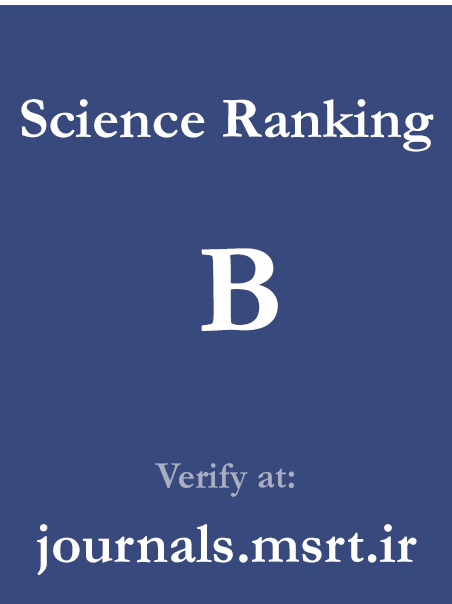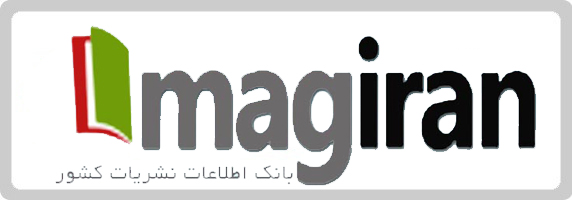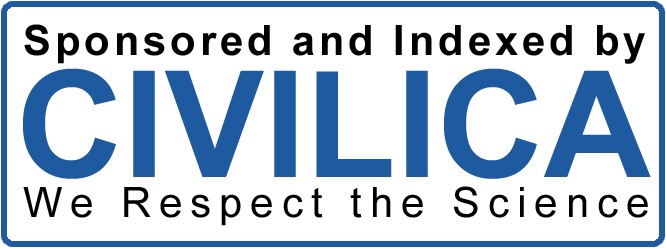Presenting a Structural Model of the Effect of Self-Esteem on Creativity with the Mediating Role of Academic Self-Efficacy in Students
Keywords:
Self-esteem, Creativity, Academic self-efficacy, Students, NekaAbstract
The present study aimed to present a structural model of the effect of self-esteem on creativity with the mediating role of academic self-efficacy among students of the Islamic Azad University, Neka Branch. This research employed a descriptive–survey design. The statistical population included all students of the Islamic Azad University, Neka Branch, in the 2022–2023 academic year, totaling 1,653 individuals. Based on the Krejcie and Morgan table, a sample of 312 students was selected using stratified random sampling according to gender. Data collection tools included the standard Rosenberg Self-Esteem Questionnaire, the Torrance Creativity Questionnaire, and the McIlroy and Bunting Academic Self-Efficacy Questionnaire. The reliability coefficients, calculated using Cronbach’s alpha, were 0.84 for the self-esteem questionnaire, 0.78 for the creativity questionnaire, and 0.83 for the academic self-efficacy questionnaire, indicating acceptable reliability for these instruments. Data were analyzed using structural equation modeling (SEM) with Amos software. Self-esteem had a positive and direct effect on students’ creativity and academic self-efficacy. Moreover, academic self-efficacy had a positive and direct effect on students’ creativity. In addition, self-esteem influenced creativity through the mediating role of academic self-efficacy among students of the Islamic Azad University, Neka Branch. It is concluded that students with higher self-esteem and academic self-efficacy demonstrate greater creativity, employ more effective learning strategies, and ultimately achieve better performance.
Downloads
References
1. Razaghpour A, Panahi R, Shafahi MAUMM, Dehgankar L. The relationship between self-esteem and self-efficacy in nursing students in Qazvin: A cross-sectional study. Health in the FieldVL - 8. 2021(4):34-43.
2. Ford JD. Relationship of childhood maltreatment, exercise, and emotion regulation to self-esteem, PTSD, and depression symptoms among college students. Journal of American college health. 2021;69(6):653-9. doi: 10.1080/07448481.2019.1705837.
3. Zhao Y, Zheng Z, Pan C, Zhou L. Self-esteem and academic engagement among adolescents: A moderated mediation model. Frontiers in psychology. 2021;12:690828. doi: 10.3389/fpsyg.2021.690828.
4. Hu W. Academic self‐efficacy and academic performance among high school students: A moderated mediation model of academic buoyancy and social support. Psychology in the Schools. 2022;59(5):885-99. doi: 10.1002/pits.22653.
5. Murad OS. Social Anxiety in Relation to Self-Esteem among University Students in Jordan. International Education Studies. 2020;13(2):96-103. doi: 10.5539/ies.v13n2p96.
6. Keshtvarz Kandazi E, Barzegar M, Shokouhi MJ. In a study on the mediating role of self-efficacy and academic self-regulation in the relationship between self-esteem and happiness. Education and EvaluationVL - 13. 2020(51):95-131.
7. Bayat A, Yaghoubi A. The relationship between self-esteem of Bu-Ali Sina University students with their happiness and creativity. Initiative and Creativity in Humanities. 2020;3(4):147-64.
8. Ying J, Parsakia K. Behavioral Activation Therapy: Boosting Happiness and Creativity Among College Students. KMAN Counseling & Psychology Nexus. 2024;2(2):57-65. doi: 10.61838/kman.psynexus.2.2.9.
9. Chen X, He J, Fan X. Relationships between openness to experience, cognitive flexibility, self-esteem, and creativity among bilingual college students in the US. International Journal of Bilingual Education and Bilingualism. 2022;25(1):342-54. doi: 10.1080/13670050.2019.1688247.
10. Boeiry I, Talebzadeh Shushtari M, Dasht Bozorgi Z. Designing and testing a causal model of self-directed learning based on emotional creativity, critical thinking, and academic vitality with achievement motivation as a mediator. Journal of Psychological Sciences. 2024;23(137):1107-28.
11. Stolz RCAUMCA. Poised for creativity: Benefits of exposing undergraduate students to creative problem-solving to moderate change in creative self-efficacy and academic achievement. Journal of Creativity. 2022;32(2):100024. doi: 10.1016/j.yjoc.2022.100024.
12. Talebzadeh Shushtari M, Boyeri IDBZ. Design and test of a causal model of self-directed learning based on emotional creativity, tendency to critical thinking and academic vitality with the mediation of achievement motivation. Journal of Psychological Sciences. 2024;23(137).
13. Schöber C. Determinants of academic self-efficacy in different socialization contexts: investigating the relationship between students' academic self-efficacy and its sources in different contexts. Social Psychology of Education. 2020;23:339-58. doi: 10.1007/s11218-019-09535-0.
14. Gharib Tarzeh S, Javadipour M, Karamdoost N. The relationship between learning styles and creativity with academic self-efficacy in first secondary school students. Strategies for Education in Medical Sciences. 2022;15(4):330-40.
15. Du K, Shi B. Achievement goals and creativity: the mediating role of creative self-efficacy. Educational Psychology. 2020;40(10):1249-69. doi: 10.1080/01443410.2020.1806210.
16. Gupta S, Pandey S, Sahoo S, Pandey CS. E-learning's influence on academic performance, learning outcomes and creativity. The International Journal of Information and Learning Technology. 2024;41(3):217-29. doi: 10.1108/IJILT-07-2023-0117.
17. Almulla MA. Constructivism learning theory: A paradigm for students' critical thinking, creativity, and problem solving to affect academic performance in higher education. Cogent Education. 2023;10(1):2172929. doi: 10.1080/2331186X.2023.2172929.
18. Hernández YCU, Luy-Montejo CA. Academic procrastination, self-esteem and self-efficacy in university students: Comparative study in two peruvian cities. International Journal. 2020;9:2475.
19. Ajdarbin B, Abolmaali alhosseini K, Ghorban Jahromi R, Dortaj F. Structural Model of the Relationship between Motivational Structure and Academic Self-Defeating Behavior in Gifted Students: the Mediating Role of Problem Solving Skills. Psychology of Exceptional Individuals. 2023;13(49):29-57. doi: 10.22054/jpe.2022.69410.2475.
20. Hong S, Ryu JY, Kim M. An Analysis of the Relationships Among Academic Achievement Goal Orientation, Science Self-Concept, and Academic Engagement in Students Admitted Through the Social Integration Track at Science High Schools. Korean Soc Creativity Educ. 2024;24(4):79-93. doi: 10.36358/jce.2024.24.4.79.
21. Salari Chineh Parvin FVA. The correlation of emotional intelligence, creativity, and academic achievement with the mediating role of psychological capital in male sixth-grade students. Health Research and Development. 2024;2(2):30-17. doi: 10.61186/jhrd.2.2.17.
22. Jafari Ramishti M, editor The Impact of Creativity-Based Education on Academic Performance of Second Grade Elementary Students. Fourteenth National Conference on Management and Humanities Research in Iran; 2023.
23. Mohebbi A, Shamabadi A. Investigating the relationship between creativity and self-confidence with academic achievement in the mathematics course of first secondary school students. Research in educational sciences and counseling. 2023;1401(17):96-110.
24. Fatima R, Hassan SQU, Akram A, Raza S. Supervisor Perfectionism and Student Performance, Creativity and Academic Procrastination. JHRR. 2024;4(1):266-74. doi: 10.61919/jhrr.v4i1.371.
Downloads
Published
Submitted
Revised
Accepted
Issue
Section
License
Copyright (c) 2025 Fatemeh Soghra Sina (Author); Seyyedeh Fatemeh Ghalesari

This work is licensed under a Creative Commons Attribution-NonCommercial 4.0 International License.



